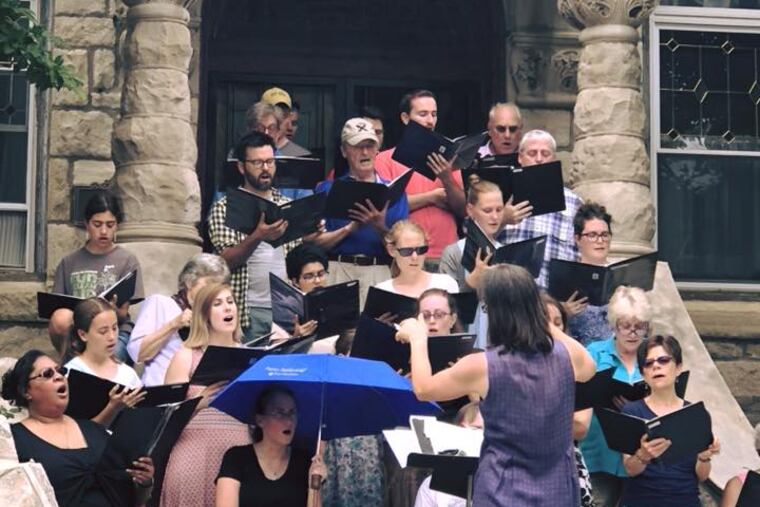Vice President Mike Pence’s visit to Philly school doesn’t reflect St. Francis de Sales’ congregation | Opinion
The school, which is a separate entity from the church, hosted Pence.

St. Francis de Sales in West Philadelphia has Vietnamese, West African, black Catholic, and Hispanic congregants alongside descendants of the Irish who built the place. Students crowd the 10:15 a.m. Sunday Mass from the University of the Sciences and the University of Pennsylvania; priests in residence have included the son of Lithuanian immigrants, an Igbo Nigerian, and a Lancaster farmboy. Young families abound, but it’s also not uncommon to see a tattooed punk come into church with his transgender partner. In short, de Sales is the poster child of Philadelphia Catholic diversity.
It is not the kind of place that Vice President Mike Pence, a devout conservative with a history of marginalizing people of color and the LGBTQ community, would normally visit. But on Wednesday, that’s exactly what happened. His visit drew the ire of the protestors, who showed up to condemn Pence’s presence in the largely liberal neighborhood.
What Wednesday’s protesters may not realize is that the school is an entirely separate entity from the parish — and the congregation of the parish sides with them.
In 2011, the Sisters, Servants of the Immaculate Heart of Mary — the home team of Philadelphia religious orders sometimes affectionately called the “Macs” — acrimoniously separated from the parish. Rather than be a local “parochial school” where children from the neighborhood attended, St. Francis de Sales School became a “mission school” model — a sort of Catholic “charter school” — catering to non-Catholics in need around the city.
The school hosted Pence. Not the parish.
This separation of powers between church and school in leadership is a growing trend among Philadelphia Catholic churches. As pew numbers shrink and church buildings close and parishes consolidate into one another, parochial schools are typically “rented out” to or divided into independent, self-governing entities. Often, the marriage is a shaky one. It’s a model intended to help churches survive, and in some cases, cater to populations beyond the parish’s borders — at de Sales, it’s one of great success, I might add — but it also severs the school from its local population.
The political disjunct between the socially left-leaning neighborhood surrounding de Sales and the welcoming of Pence at the school is the most extreme manifestation.
But these divisions also obscure the silent ways in which the people of St. Francis de Sales Parish further reach out to the marginalized of their community. They rent out parish buildings at a substantial loss to provide much-needed services for seniors and immigrants in the area. They provide free turkeys and hams at the holidays — toys for the poorest families across the city at Christmas. The parish has free concerts and community sponsorships; its choir even comes out as a part of West Philly Porchfest, a neighborhood-wide June “do-it-yourself” concert. And, most demonstrably, parishioners have fought to keep the doors of the sanctuary open every day from 6 a.m. until 6 p.m., leaving a cavernous, breathtakingly beautiful building open for reflection, meditation, and prayer. I know, because I open and close them, and can tell you countless stories of people wandering in and out: the homeless, the college student, the commuter on foot. The late pastor frequently referred to de Sales as a “citadel of hope,” with its landmark dome as its beacon. Our doors being open shares a little bit of beauty with the world.
For me, that’s the opposite of Pence’s presence. For the school to host a political figure so at odds with the pulse of the neighborhood with all his baggage does injustice to the parishioners who live there, love there, are married there, and die there — parishioners who have worked hard to build up their neighborhood and keep their doors open to one another.
Michael Nevadomski is the sacristan of St. Francis de Sales Parish in West Philadelphia.